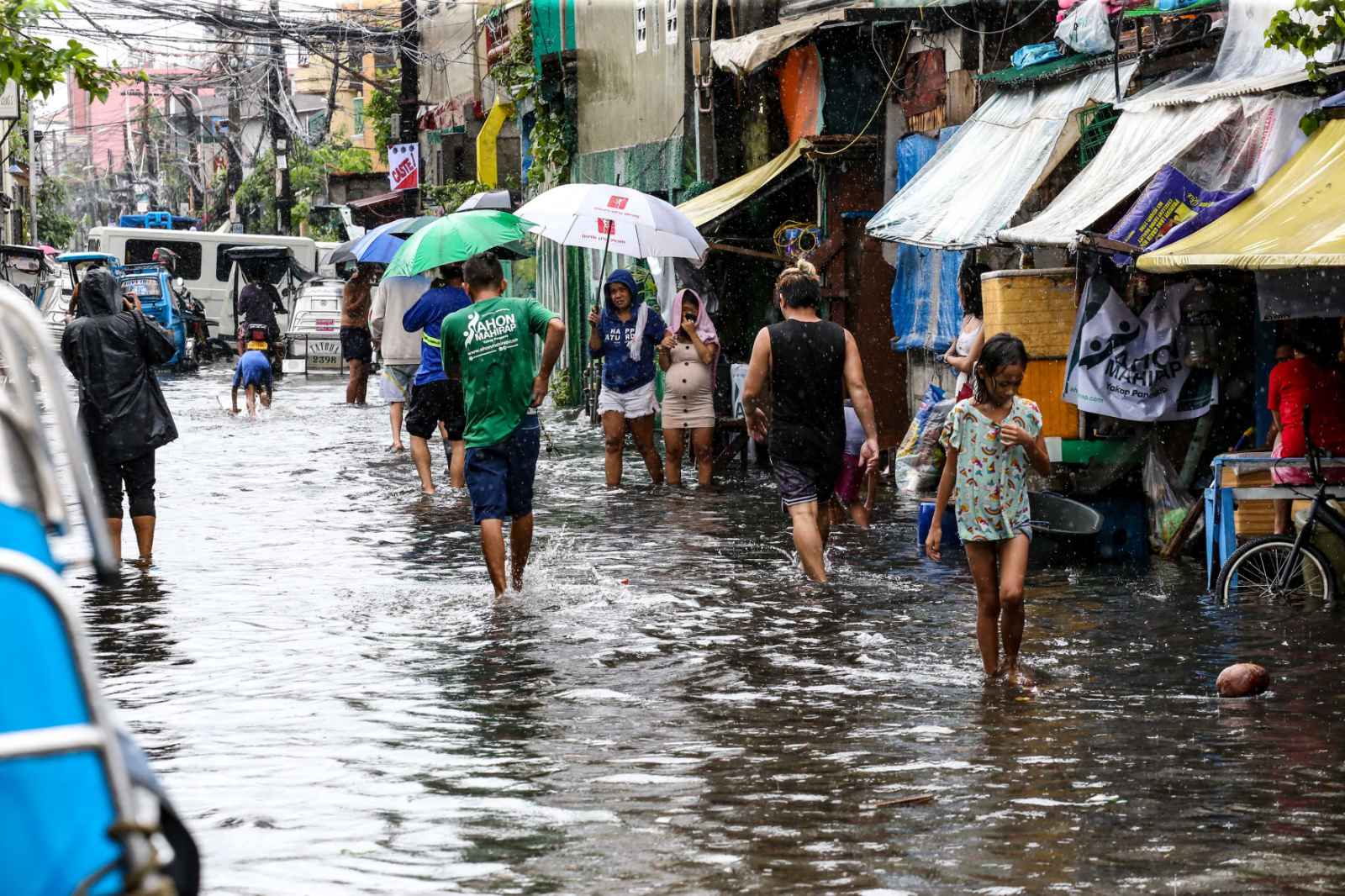Leptospirosis surge: DOH activates response plan, assures 'no shortage' of hospital beds
As it prepares for an anticipated increase in leptospirosis cases in the coming weeks, the Department of Health (DOH) assured on Monday, Aug. 12, that a surge response plan is already in place and that there is no current shortage of hospital beds.

“Hindi pa naman nagkululang ngunit nakikita natin na malapit mapuno o minsan, lumalampas pero naagapan (There’s no shortage yet, but we can see that it's close to being full, or sometimes exceeds capacity, but it is managed in time),” DOH Spokesperson and Assistant Secretary Albert Domingo said during an interview for Unang Balita.
“Yung nababalitaan natin is yung sa NKTI [National Kidney and Transplant Institute] at San Lazaro Hospital pero nakikita naman natin na naagapan (What we've been hearing about is at NKTI and San Lazaro Hospital, but we can see that it has been managed),” Domingo added.
Surge capacity plan
To ensure that leptospirosis patients are accommodated and treated promptly, Domingo said the DOH has already activated its surge capacity plan, particularly in the National Capital Region (NCR), due to the increasing number of cases.
By activating the surge capacity plan, the DOH aims to ensure that more beds will be available in hospitals for leptospirosis cases.
“Kung dati ang isang ospital, sabihin na nating sa 100 kama, 10 lang ang nakalaan para sa leptospirosis [pero] ‘pag sinabing surge capacity, dinadagdagan ‘yun, so hindi lang 10, magiging 20 na kama o more depende sa pangangailangan (If before a hospital, let's say with 100 beds, only 10 were allocated for leptospirosis [but] when we talk about surge capacity, those numbers are increased, so it's not just 10, it becomes 20 beds or more depending on the need),” Domingo explained.
“Ito ang ginagawa ng ating surge capacity plan para kaya natin tanggapin ang ating mga pasyente kung kinakailangan (This is what our surge capacity plan is doing so that we can accommodate our patients if necessary),” he added.
The activation of the surge capacity plan in NCR due to rising leptospirosis cases was announced via a memorandum dated Aug. 9, signed by DOH Officer-In-Charge Undersecretary Gloria Balboa.
“Due to increasing leptospirosis cases in the NCR and in preparation for anticipated increases over the coming days, the ability to respond timely and significantly is being challenged, especially in the augmentation of human and non-human resources, such as the deployment of health workers to address the surges and increasing the critical care capacity,” Balboa said.
Related to this, Balboa said that all DOH NCR hospitals should also utilize common referral forms made available online.
The DOH earlier advised leptospirosis patients to seek treatment at nearby hospitals with equal capability.
READ:
https://mb.com.ph/2024/8/9/leptospirosis-cases-can-be-managed-by-other-capable-hospitals-doh
DOH also released leptospirosis referral lines with the numbers (02) 8531-0037 and (0920) 283-2758.
Leptospirosis watch
Meanwhile, Domingo noted that the DOH continues to monitor leptospirosis cases nationwide.
Citing the latest data as of July 27, Domingo said there are 1,444 leptospirosis cases recorded. This number is 42 percent lower compared to the 2,505 cases recorded during the same period last year.
The DOH has recorded 67 cases from July 14 to 27. Domingo, however, noted that the number of cases is likely to increase due to delayed reports. “Tataas pa ito (This will still increase),” he added.
The DOH has also recorded 162 leptospirosis deaths.
Seek early consultation
To ensure that responding to leptospirosis cases remains manageable, Domingo underscored the importance of seeking early consultation.
“Pag tayo ay lumusong sa baha, kahit wala pang nararamdaman, kahit walan pang lagnat, basta nalusong sa baha, pumunta sa doctor para mabigyan ng doxycycline, kung kinakailangan (When we wade through floodwaters, even if we don't feel anything yet, even if there's no fever, as long as you've been in the flood, go to the doctor to be given doxycycline if necessary),” Domingo advised.
READ:
https://mb.com.ph/2024/7/24/exposed-to-flood-waters-doh-recommends-immediate-consultation-treatment
Doxycycline, Domingo said, is free in government centers and readily available in the market with a doctor's prescription. It is used as a prophylaxis and treatment for leptospirosis. The DOH earlier announced that a price freeze is currently in effect for doxycycline until Sept. 23.
Aside from doxycycline, Domingo noted that other antibiotics are available for leptospirosis treatment as long as patients seek consultation and obtain a prescription.
Seeking early consultation, Domingo said, will also help ensure that the healthcare system is not overwhelmed and that hospital beds for leptospirosis cases remain adequate.
Domingo mentioned that patients can seek consultation with government hospitals and centers and can also consult volunteer doctors via telemedicine.
“Walang talagang kakulangan sa konsultasyon…kailangan lang gawan ng oras at lumapit para malaman natin ang sitwasyon natin (There is no lack of consultation… we just need to set aside time and reach out so that we can understand our situation),” he added.
Leptospirosis, as explained by the DOH, is a bacterial infection transmitted by many animals, such as rodents and other vermin. It is a zoonotic disease, affecting both animals and humans, caused by the Leptospira bacterium found in contaminated water or soil.
The DOH noted that it generally takes two to 30 days to get sick after contact with the bacteria that cause leptospirosis.
Symptoms of leptospirosis may include fever, vomiting, nausea, muscle pain, and headache.
Without treatment, the DOH warned that leptospirosis can lead to kidney damage, meningitis, liver failure, trouble breathing, and even death.
RELATED STORY: